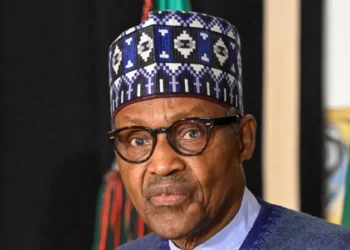Djibouti marks 47 years of independence today, commemorating its liberation from French rule on June 27, 1977. As citizens flood the capital’s streets with colorful parades and cultural celebrations, the East African nation reflects on its progress and looks ahead to a future of economic growth.
Djibouti’s strategic location on the Horn of Africa drives its development. The country controls the Bab el-Mandeb Strait, a critical waterway connecting the Red Sea to the Gulf of Aden. This strategic location makes Djibouti a key player in global trade and geopolitics, attracting international attention and investment.
At the heart of Djibouti’s economic strategy lies the Doraleh deep-water port. Recently upgraded and expanded, this maritime facility serves as a key logistics hub for East Africa. The port handles a growing volume of cargo, linking the region to major shipping routes and global markets. The government capitalizes on this asset to fuel economic expansion and draw foreign investors.
Happy Independence Day, Republic of Djibouti 🇩🇯
— Camp Lemonnier (@Camp_Lemonnier) June 27, 2022
Every morning on Camp Lemonnier, Djibouti, the colors of the Republic of Djibouti fly next to the flag of the United States, and the national anthems of both countries are played.#Djibouti#Independence#45years pic.twitter.com/kmk9jmzhoG
Djibouti is also exploring its renewable energy potential. The country possesses substantial geothermal resources, largely untouched until now. Developing this sector promises to boost domestic power supply, potentially leading to energy independence and creating new export opportunities. Officials view this as a cornerstone of Djibouti’s sustainable development plan.
Tourism emerges as another pillar of economic diversification. Djibouti boasts diverse landscapes, from shimmering salt lakes to dramatic volcanic formations. The country aims to position itself as a destination for eco-tourism and adventure travel. Plans include developing sustainable resorts, promoting marine activities in the Red Sea, and showcasing the nation’s unique geological features.
The government is proactively addressing economic challenges through targeted initiatives. It is focusing on job creation programs that prioritize youth employment, aiming to harness the potential of Djibouti’s young population. Additionally, skills training and education initiatives are being implemented to prepare workers for emerging industries, ensuring that the local workforce can meet the demands of a growing economy.
Djibouti also prioritizes infrastructure development, extending beyond its ports to investments in road networks, telecommunications, and urban planning. These initiatives are designed to enhance citizens’ quality of life and create a more conducive environment for businesses and investors.
Regional cooperation is central to Djibouti’s strategy, with a particular focus on strengthening ties with neighboring countries, especially Ethiopia. This collaborative effort promotes trade relationships and joint infrastructure projects, positioning Djibouti as a gateway to East African markets and increasing its attractiveness to international partners.









